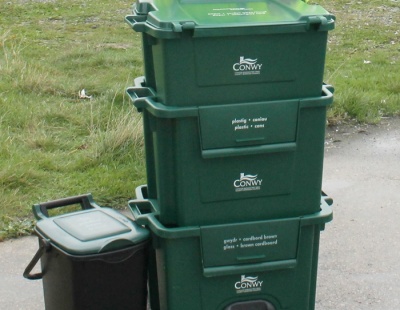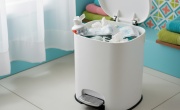Welsh Collections Blueprint still presents best option
 An independent review of the Welsh Government’s blueprint for waste and recycling collections has found it is still the best model for Welsh local authorities to follow.
An independent review of the Welsh Government’s blueprint for waste and recycling collections has found it is still the best model for Welsh local authorities to follow.
The research carried out by Eunomia Research & Consulting analyses the Welsh Government’s ‘Collections Blueprint’ policy document, published in March 2011 to provide a model system that the government felt would deliver high recycling rates, significant cost savings and improved sustainable development outcomes.
The blueprint-preferred model is a ‘kerbside sort’ system, with weekly separate collections of dry recyclables and food waste, and fortnightly collections of residual waste.
Eunomia was commissioned to review the blueprint last year, however, after the National Assembly for Wales’s Environment and Sustainability Committee argued that new evidence had arisen since 2011 and that ‘no single method of collecting resources from householders offers a clear lead in performance, cost or efficiency’.
Report findings
The report stresses that it was commissioned to consider whether the systems outlined in the blueprint still demonstrate best practice, and not whether a single blueprint is needed at all. In this regard, it states the blueprint ‘does still appear to offer clear benefits in terms of cost and material quality, whilst offering no relative overall disadvantages in terms of recycling performance and health and safety (and clear advantages regarding residual waste volume restriction and food waste collection)’.
The recommended model for the collection of waste from households is weekly separate collection of dry recyclables via ‘kerbside sort’, with material being collected separately in boxes and/or in reusable sacks, with two or more boxes provided per household, and recyclables being sorted into separate compartments on the collection vehicle by collection staff.
Evidence quoted in the Eunomia report supports the view that the separate collections system results in ‘higher-quality, less contaminated material’. This, in turn, the report states, ‘results in a higher likelihood of material being appropriate for higher value-added closed-loop uses in the UK and Europe… [and] could result in… better overall greenhouse gas emissions performance for the Collections Blueprint versus alternative systems – thus helping Welsh Government and Welsh authorities comply with the Well-being of Future Generations (Wales) Act 2015’.
 The review also found that there is ‘strong evidence’ to support policies focusing on the restriction of household waste capacity, both in terms of improving recycling performance and reducing cost. Indeed, the report suggests that emerging evidence strongly suggests that a move to three- or four-weekly residual waste collections could result in further improvements in terms of recycling performance (in particular food waste) and cost reduction.
The review also found that there is ‘strong evidence’ to support policies focusing on the restriction of household waste capacity, both in terms of improving recycling performance and reducing cost. Indeed, the report suggests that emerging evidence strongly suggests that a move to three- or four-weekly residual waste collections could result in further improvements in terms of recycling performance (in particular food waste) and cost reduction.
Several Welsh authorities have already reduced the frequency of residual waste collections to every three weeks, including Gwynedd, Powys and Blaenau Gwent. Conwy, Anglesey, Bridgend and Flintshire are all considering the change or have plans to implement it.
The review does, however, state that additional research should be carried out to investigate the health and safety implications of the blueprint and other collection services. It notes that evidence surrounding this issue that was used to develop the blueprint was carried out before design improvements to resource recovery vehicles and rear compaction vehicles, and it would ‘therefore be beneficial to look at all aspects of the health and safety associated with collections in a holistic manner’.
Blueprint provides ‘best solution for Wales’
Natural Resources Minister Carl Sargeant said: “I am pleased the review concluded that the Collections Blueprint still provides a good basis for a waste collection standard for Wales.
“The widespread adoption of the blueprint provides the best overall economic, financial, social and environmental solution for Wales. It would lead to efficiency savings through procurements, to shared depot facilities and a more consistent approach for householders as well as a consistent way of presenting materials to market.”
The full Eunomia review of the Welsh Government’s Collections Blueprint can be downloaded from the government website.




